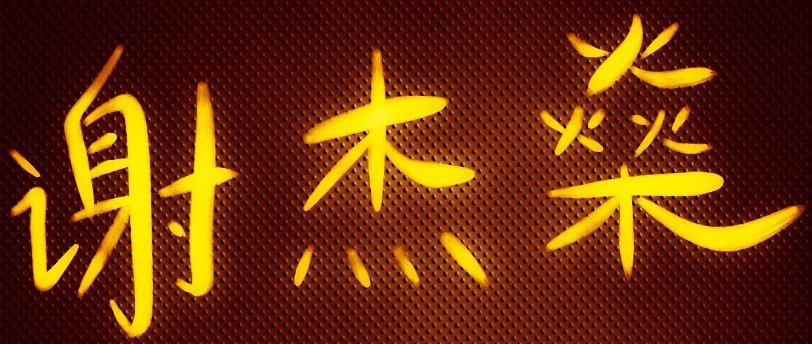
This week saw two attempts by book burners to take down offensive literature. One was successful, the other failed. Both attempts are instructive for authors to prepare for the realities of modern-day publishing and digital book burning.
The Case of Amelie Wen Zhao
Born in Paris, raised in China, and now living and working in Manhattan, Amelie Wen Zhao is a new author who had recently finished her first novel, Blood Heirs. Slated for a June 2019 release, Blood Heirs is a Young Adult fantasy novel rooted in Russian and Asian culture. After catching wind of its existence, a hate mob descended on Zhao, accusing her of racism against blacks. The evidence: a scene featuring a slave who isn’t black.
The character in question is described as ‘bronze’, an adjective that correlates to the Mediterranean and North Africa in our world. In Zhao’s words, the novel is rooted in modern-day human trafficking and slavery. But in the eyes of the social justice warriors, it is no defence. Zhao finally cracked under pressure, apologised to the ‘book community’ on Twitter, and indefinitely delayed the release of her novel.
In the new age of book burning, all it takes to trigger a mob is to violate one of the many arbitrary rules floating around the Net. Yesterday, it is the depiction of slavery. Tomorrow, it may well be something else. There is no definitive set of approved political opinions — and the social justice warriors want it that way.
The ‘book community’ of YA Twitter is toxic, and its sidechains in SFF Twitter is little better. They’re not interested in books and they’re not interested in reading. They’re only interested in projection and power. They didn’t care that slavery is a global phenomenon, they didn’t care that the slave in question isn’t black, they didn’t care that this novel isn’t about American blacks. They projected their ideology on Zhao, a liberal who expressed the same identity politics they subscribed to, and poured out their hate.
It doesn’t matter if you spout the right political opinions like Zhao did, it doesn’t matter if you’re avowedly apolitical, it doesn’t matter if your story is clearly a work of fiction set in a fantasy world. You cannot pre-emptively defend yourself against the mob just by professing that you share their politics and by signalling it in your stories. You cannot appease the mob — especially if your politics lean anywhere right of Mao Ze Dong.
What you can do is build a community of fans and writers. As Rawle Nyanzi states, you must become a hard target:
As we’ve seen with the previous authors mentioned above, hate-mobs often target those they are likely to extract concessions from. In the case of tradpub YA, that means people who want to be seen as progressive and woke. Therefore, attacking a right-wing author is a waste of time since that author is simply not going to care about intersectionality or representation — their literary circles don’t care, their audiences don’t care, so they won’t care either, especially if it boosts their Amazon sales rank. By contrast, a tradpubbed YA author’s brand absolutely depends on being woke since that’s how you get huge publicity and big advances, to say nothing of behind-the-scenes support of various kinds.
You need a network who will stand by you and support you. Readers and writers and fans of the genre, not the Neo-Red Guard for whom fiction is only a vehicle for propaganda and all heresies and counter-revolutionary messages must be punished by struggle sessions.
I’m extremely fortunate that the PulpRev movement is a hugely supportive network of writers and readers, all of whom love fiction and abjure hamfisted politicisation. Writers in other genres would be well-advised to find or start similar communities.
The Takedown of Castalia House
Two days ago, my publisher, Castalia House, mysteriously disappeared from Amazon. Every book was taken down, and its publishing account deleted. Amazon claimed that Castalia House didn’t have the rights to publish Corrosion by Johan Kalzi — a patently ridiculous claim, as CH was the original publisher. Worse yet, Amazon refused to pay all previously earned and unpaid royalties.
Fortunately, saner heads prevailed at Amazon, and Castalia House was reinstated.
This isn’t the first time Castalia House has been targeted. The publication of Corrosion catalyzed shenanigans from Amazon, leading to an unwarranted takedown and swift reinstatement. This tells me that either the same employee was responsible for both incidents, or separate individuals sharing the same ideology.
Castalia House is a leading publisher of right-wing writers, and chief editor Vox Day notoriously proclaimed himself a leader of the Alt-Right. This attracts attention and hostility from the social justice set. I fully expect future attacks on CH, VD and myself from this angle.
This incident highlights the danger of relying solely on a single distributor. Amazon might be the world’s largest marketplace, but it has clearly been infiltrated by social justice warriors who now hold positions of power. By power I don’t necessarily mean managers or directors or leaders; I mean the power to decide what is seen and sold on Amazon and what isn’t. A humble employee in the right department can do just that.
If this were the work of a rogue employee or employees, I expect Amazon to fire the person(s) responsible swiftly. I am not, however, going to bank on it.
In anticipation of takedown attempts, Castalia House has established its own estore. After Vox Day announced Amazon’s takedown, he directed traffic on his blog to Arkhaven, where customers could buy books directly from the publisher. Consequently, this takedown attempt was a minor inconvenience that resulted in a spike in positive attention and sales.
Indie authors must maximise their distribution to eliminate vulnerabilities like this. I have publishing accounts on Smashwords and Amazon, and I also have my own estore on my website. If WordPress locks me out, I have Steemit, and soon, Narrative. Other authors have similar strategies.
Amazon is not a benevolent monopoly. It cannot be counted on to always do right by the writers and publishers who rely on it. The only acceptable strategy is diversification.
Do not collaborate with your oppressor
If you’re a writer, you’re a target.
Your politics don’t matter. What you write about doesn’t matter. Your race, nationality, language, age, religion, all of these identity markers don’t matter. If you become famous, sooner or later, someone will hate you. That hater will do everything in his power to destroy you.
It can come in the form of a mob of Neo-Red Guards demanding a struggle session. It can be a rogue employee unlawfully deleting your stories. It can be a journalist slandering you and your work. The hate will come in many guises.
You must steel yourself to never give in. Remind yourself that these haters don’t love reading, they don’t love the genre, they don’t care about anything except the power to decide who gets to be read and what messages get to be heard. Their opinion doesn’t matter and will matter matter.
You must be prepared for the hate. Build a network. Diversify as far as possible. And if they come for you, fight back.
Do not collaborate with your oppressor.
—

HAMMER OF THE WITCHES, the sequel to my Dragon Award nominated novel NO GODS, ONLY DAIMONS, is now back on Amazon. Get it here before some SJW takes it down again.
To stay updated on writing news and promotions, sign up for my mailing list here.
Leave a Reply